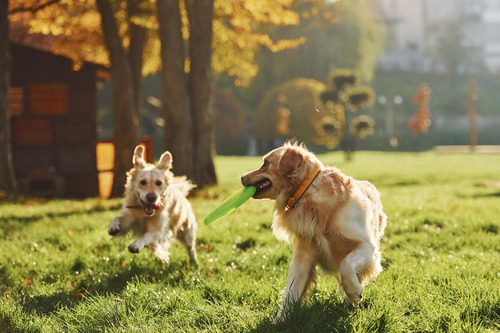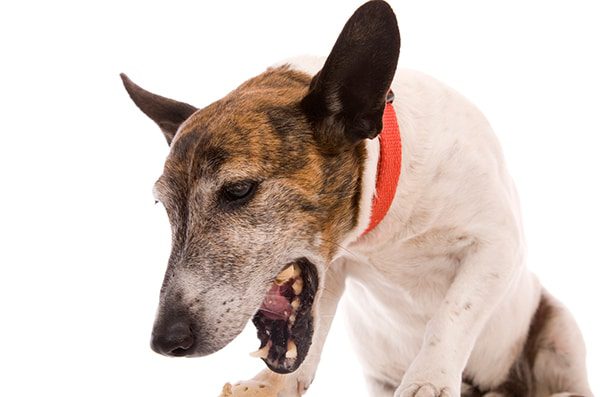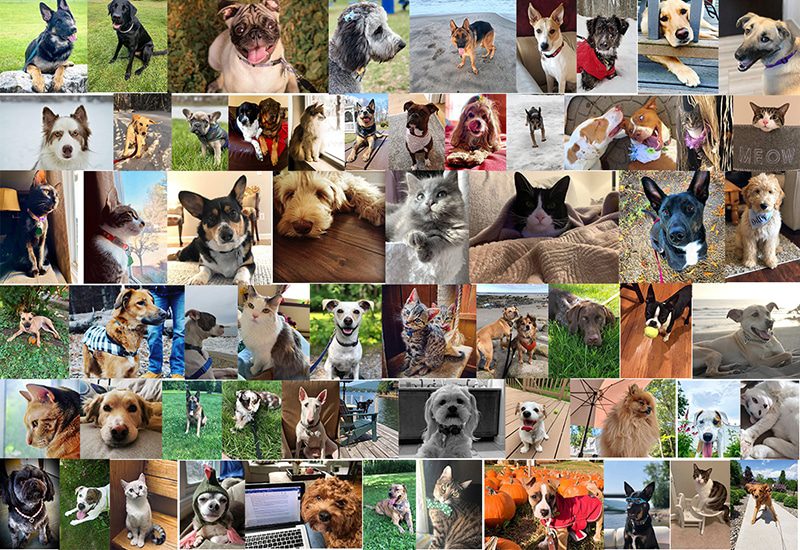Is Giardia Contagious in Dogs?
Giardia is one of those health concerns that can catch dog owners by surprise. It’s common, often misunderstood, and yes, contagious under the right circumstances. If your dog has been diagnosed with giardia or is showing unusual symptoms, you may be wondering: is giardia contagious in dogs? More importantly, can it spread to other pets or even people? This blog dives into what giardia is, how it spreads, and what it means for your household. Whether you’ve dealt with this parasite before or are hearing about it for the first time, we’ll help you understand the potential risks and what to watch for. If you suspect your dog may have been exposed to giardia, call Cornerstone Veterinary Hospital of Clifton Park at (518) 383-6254 or request an appointment today.

What is Giardia?
Giardia is a microscopic intestinal parasite that affects both animals and humans. It’s found all over the world and can survive in various environments, especially where water is involved. The most common species that affects dogs is Giardia duodenalis (also known as Giardia intestinalis or Giardia lamblia), which can cause gastrointestinal issues ranging from mild to severe. Dogs typically contract giardia by ingesting the parasite’s cysts, which are shed in the feces of infected animals. These cysts can survive in water, soil, or on surfaces for weeks.
Once ingested, the cysts activate in the intestines, leading to infection. Symptoms often include diarrhea, gas, vomiting, and weight loss, although some dogs show no signs at all. Because giardia infections can fly under the radar or mimic other gastrointestinal problems, it’s essential to get a proper diagnosis from your veterinarian. This helps prevent the spread of the parasite and ensures proper follow-up care.
Is Giardia Contagious in Dogs?
Yes, giardia is contagious in dogs. The parasite spreads primarily through the fecal-oral route, which means dogs can become infected by eating, drinking, or licking something that has been contaminated with feces containing giardia cysts.
How Dogs Spread Giardia to One Another
The answer to “is giardia contagious in dogs” becomes especially important in environments where dogs interact closely, such as dog parks, boarding facilities, or multi-pet households. In these settings, infected dogs can easily transmit the parasite through shared water bowls, grooming behaviors, or direct contact with contaminated surfaces. Giardia cysts can survive in cold, damp conditions, making it easy for them to linger and spread without immediate detection.
Can Giardia Spread From Dogs to Humans?
While it is uncommon, giardia can spread from dogs to humans. This type of transmission is called zoonotic. The strain of giardia that most commonly infects dogs doesn’t always affect people, but there is enough genetic overlap between species that cross-species transmission is possible, particularly for individuals with weakened immune systems. Practicing good hygiene, especially handwashing after handling dog waste or cleaning contaminated areas, significantly reduces the risk. If you have small children, elderly individuals, or immunocompromised family members in the home, speak with your veterinarian about additional precautions. The team at Cornerstone Veterinary Hospital of Clifton Park can answer your questions and help you minimize exposure risks.
Common Sources of Giardia Exposure
Understanding where giardia thrives can help you avoid common infection hotspots. While there’s no way to completely eliminate the risk, knowing what to avoid can reduce the chances of transmission.
Contaminated Water
Dogs love to drink from puddles, streams, and ponds, but this habit can expose them to giardia. Infected wildlife or other dogs can shed the parasite into natural water sources, where it remains infectious for weeks. Even seemingly clean-looking water can harbor cysts.
Dog Parks and Daycare Facilities
High-traffic areas for dogs are breeding grounds for a variety of parasites, including giardia. While many facilities take hygiene seriously, all it takes is one infected dog for the parasite to spread. If your dog frequents these places, ask about their sanitation protocols.
Shared Food and Water Bowls
Dogs that share bowls are at higher risk of transmission. Giardia can survive on surfaces like bowls and toys if they’re not thoroughly cleaned between uses. Using stainless steel bowls and washing them regularly with hot, soapy water can help prevent the spread.
Symptoms of Giardia in Dogs
Dogs infected with giardia may show signs right away, or the infection might go unnoticed for weeks. Some dogs never display symptoms at all, which is why regular veterinary checkups matter.
Signs to Watch For
- Diarrhea, often with a foul odor or mucus
- Weight loss, despite normal eating habits
- Lethargy or low energy
- Vomiting, especially if persistent
- Gas and bloating
- Soft or greasy stools
Because these symptoms can indicate several different conditions, the only way to confirm giardia is through veterinary testing. If your dog displays any of these signs, contact Cornerstone Veterinary Hospital of Clifton Park at (518) 383-6254 to schedule an appointment.
How Giardia is Diagnosed and Managed
While this blog is not a place for medical advice or home remedies, it’s still helpful for pet owners to understand what typically happens after a giardia diagnosis. The sooner you act, the better your chances of containing the infection and preventing reinfection.
Veterinary Diagnosis
Giardia can be tricky to detect on a single fecal test because the cysts don’t always show up consistently. Your veterinarian may request multiple samples or use an antigen test to improve accuracy. Confirming the infection is important for choosing the most effective treatment and deciding how to manage your dog’s environment.
Environmental Management
Giardia is highly contagious among dogs, so your veterinarian will likely recommend steps to sanitize your home and yard. Regularly washing your dog’s bedding, disinfecting bowls and toys, and bathing your dog to remove cysts from their coat are all part of the process. Dogs can reinfect themselves if exposed again during or after treatment.
How Long is Giardia Contagious in Dogs?
A dog with giardia can begin shedding cysts within a few days of infection and may continue to do so for several weeks, even if they no longer show symptoms. This makes containment challenging and underscores the importance of completing any prescribed treatment and following hygiene instructions closely. In multi-dog households, all pets may need to be tested and monitored. Even dogs without symptoms can carry and spread giardia. Your veterinarian will advise on the best approach for testing and isolating infected dogs to prevent transmission within the home.
Reducing the Risk of Transmission at Home
Giardia may be highly contagious, but there are several steps you can take to reduce the risk to your other pets and family members.
- Clean up waste immediately: Always pick up after your dog promptly and dispose of it properly.
- Wash hands thoroughly: After handling dogs or cleaning up waste, use soap and warm water.
- Disinfect surfaces: Clean bowls, crates, and toys regularly using pet-safe disinfectants.
- Avoid shared water bowls in public areas: Bring your own water for walks or outings.
- Limit off-leash time in unknown areas: Parks and trails with standing water or wildlife can pose hidden risks.
These small actions can help protect everyone in your household, including your pets, from potential exposure.
When Should You Contact Your Veterinarian in Clifton Park?
Any time your dog develops persistent diarrhea or gastrointestinal discomfort, it’s a good idea to contact your veterinarian. If you’ve been asking yourself, is giardia contagious in dogs?, and you have other pets at home, there’s even more reason to follow up. Early diagnosis can make a big difference in stopping the spread and managing your pet’s comfort. The team at Cornerstone Veterinary Hospital of Clifton Park is here to help. Call (518) 383-6254 or schedule an appointment online if your dog is showing symptoms or has been exposed to a known case of giardia.
Recent Posts
Help! My Dog Keeps Scratching and I Don’t Know What to Do!
Help! My Dog Keeps Scratching and I Don’t Know What to Do! While it is perfectly normal…
Reasons Why Your Dog is Throwing Up in Clifton Park, NY
Reasons Why Your Dog is Throwing Up in Clifton Park, NY Suddenly, you hear a familiar gurgling…
Congratulations to Our Photo Contest Finalists
Congratulations to Our Photo Contest Finalists! Thank you to all of our amazing clients – and your…
About Us
Originally opened as Animal Care Hospital by Dr. Mark Johnston in 1989, the hospital became Cornerstone Veterinary Hospital in 2015 when it was purchased by Drs. Alan and Lisa Knott. The name 'Cornerstone' holds a special place in their hearts, representing not only their Christian faith but also their commitment to being the cornerstone of the community in which they practice. As a family-owned and operated practice, every pet is treated as part of the family, ensuring they receive the highest standard of care. The team at Cornerstone Veterinary Hospital is dedicated to building lasting relationships with clients and their beloved pets, striving to be the cornerstone of the community in which they practice.



